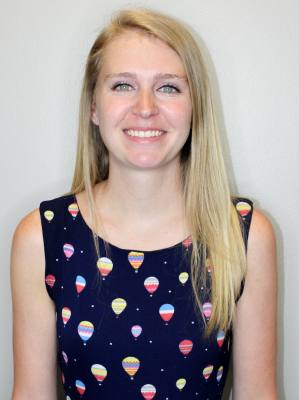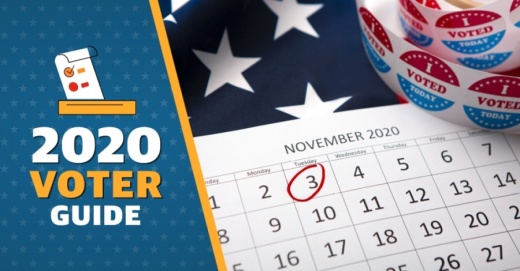“It’s been aggravating, to say the least,” Ginyard said. “It’s curtailed our events and the way we do things [and] our interaction with people.”
Linda Howell, the chair of the Fort Bend County Republican Party, said she is proud of how the party committee and candidates have adapted.
“We have been respectful of what the governor has asked and carried on campaigns and work with safety, of course, in mind,” Howell said. “We’re trying to do our part to speed this [pandemic] along so we can open up our state.”
With social distancing being top of mind the last seven months, Ginyard said going door to door for campaigning has not been happening because it is hard to gauge how comfortable people are with coming into contact with others.
“It’s just been a total hindrance,” Ginyard said. “But, you know, you just keep moving. But [COVID-19] has been very interruptive.”
Funding flows
While Ginyard said she could not speak specifically to the financial effects the coronavirus pandemic has had on campaigning and donations, she acknowledged that with so many people losing their jobs, donating has been interrupted.
Federal campaign finance law sets limits on how much money can be given and to whom. For the 2020 races, donors can give up to $2,800 per election per candidate, with primary and general elections counted separately, according to campaign finance law.
However, donors can also give up to $35,500 per year to national party committees’ general funds and up to $106,500 per year to specific party funds, such as accounts used for the national convention. Another $10,000 can be given to local parties’ federal accounts per year, and another $5,000 can be given to political action committees.
Donors have no limits when it comes to super-PACs, but those groups are legally prohibited from coordinating directly with a campaign.
“They tend to be more focused on attacking their candidate’s opponents rather than supporting them directly,” said Mark Jones, a Rice University professor and fellow with the Baker Institute of Public Policy.
Diving into U.S. House District 22
After a highly contested race that saw 20 candidates run in the primary election, the U.S. House District 22 seat will see a new officeholder after the Nov. 3 election.
The seat has been held by Republican Pete Olson for over a decade, but he decided not to run again this election cycle. Now, Republican Troy Nehls, Democrat Sri Preston Kulkarni and Libertarian Joseph LeBlanc are vying for the congressional seat in the Nov. 3 election.
According to Federal Election Commission data, from July 1, 2019-June 30, 2020, Nehls received about $517,000 in campaign donations, while Kulkarni received over $2.5 million from Jan. 1, 2019-June 30, 2020. The date ranges differ for the two candidates because Nehls filed to run later than Kulkarni.
The majority of both candidates totals came from individual donations, with Kulkarni receiving $2.4 million and Nehls receiving $476,306.94.
For Nehls, 42 individuals donated $2,800, the highest amount permitted. For Kulkarni, 72 individuals gave $5,600, the highest amount permitted, with donations made via ActBlue—a Democratic Party fundraising site—accounting for $168,000 from 30 separate contributions.
Traditionally a red district, the area encompassing Fort Bend County and portions of Brazoria and Harris counties is beginning to trend blue. In the 2018 gubernatorial election, 51% of voters voted for the Republican candidate, and 47% voted for the Democratic candidate. The remaining 2% of voters voted for the Libertarian Party or Green Party candidates.
According to Fort Bend County election data, this near 50-50 split in 2018 closed a large gap as compared to 2014’s gubernatorial election, when nearly 70% of voters favored the Republican candidate and about 30% of voters favored the Democratic candidate.
Howell said she believes the district will stay red.
However, as the early-voting period and Election Day approach, Ginyard said she expects the District 22 race to be close.
“I think that it will be a close race,” she said. “I hope we will prevail. We are working hard to pull it off, but it’s going to be a nail-biter.”
Looking at local races
Sugar Land City Council, Missouri City City Council and Fort Bend ISD all have seats up for election Nov. 3.
These races are nonpartisan, and Howell said she thinks it is a good thing city and school district candidates do not have to deal with party lines.
“I think they might have to fight a little bit for their own platform and recognition not having a party identification next to their name, but these races are probably the most important races that are going to affect our community,” she said. “I think it can be a blessing for them if they don’t want to get caught up with the different platforms of the two parties.”
FBISD has seven candidates competing for three seats, while Missouri City has eight candidates competing for three seats. Sugar Land has three positions up for election this year, but two incumbents are running unopposed, leaving At-Large Position 1 as the only contested race.
According to campaign finance records from FBISD, Missouri City and Sugar Land, many candidates did not file reports, while some had raised $0 as of the July 15 filing deadline. The next filing period ends Oct. 5.
Notably, in Missouri City, incumbent Mayor Yolanda Ford reported receipts totaling just over $6,000, while challengers Fred G. Taylor and Robin J. Elackatt did not file any campaign finance reports, according to Missouri City records.
Additionally, Vashaundra Edwards and Chris Preston—the Missouri City City Council incumbents for At-Large positions 1 and 2, respectively—reported raising $0, and none of their challengers turned in a campaign finance report.
Early voting for these and other races will run from Oct. 13-30, and Election Day is Nov. 3.
Matt Dulin contributed to this report.





